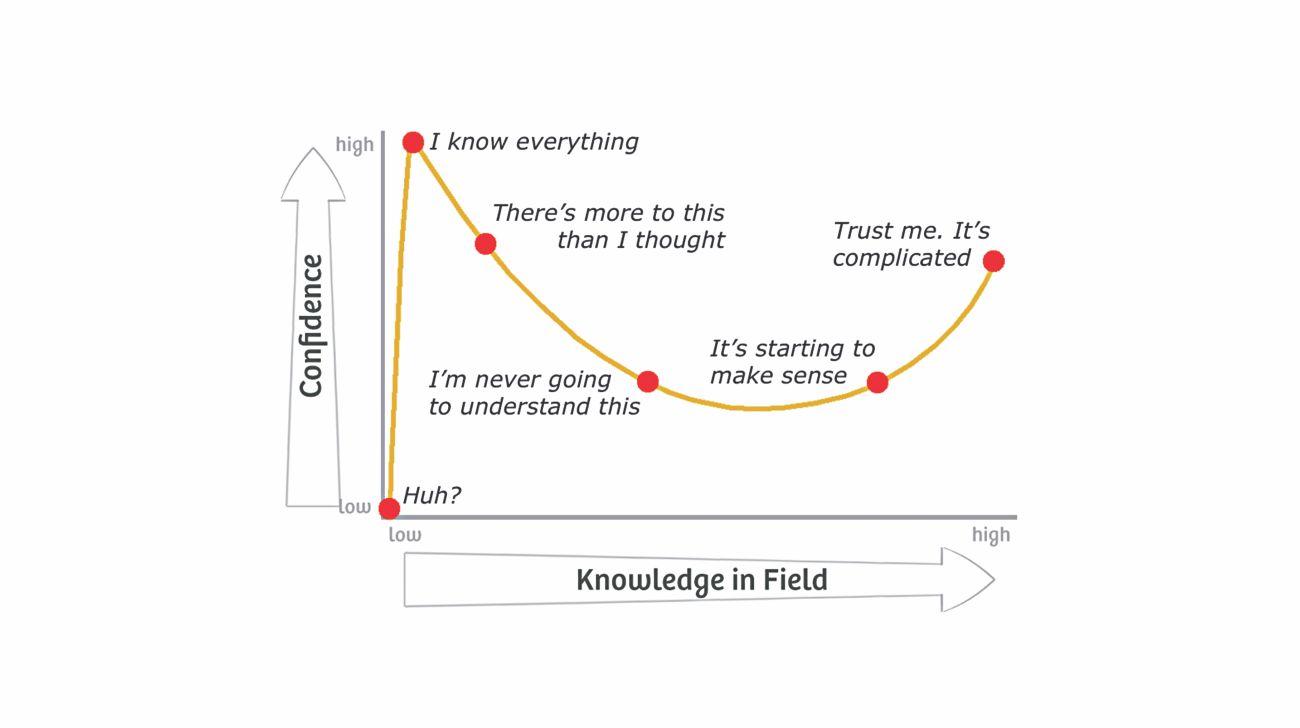
I’ve been reading up on the Dunning-Kruger effect. Leaders, church leadership, and churches generally all sprung to mind as I read.
Following scientific experiments and analysis, David Dunning and Justin Kruger confirmed what to many of us we have understood intuitively: low knowledge, experience, and wisdom can lead to a ludicrous sense of confidence.
David Dunning wrote, “In many cases, incompetence does not leave people disoriented, perplexed, or cautious. Instead, the incompetent are often blessed with an inappropriate confidence, buoyed by something that feels to them like knowledge.”
“Incompetent people tend to:
- Overestimate their own skill levels
- Fail to recognize the genuine skill and expertise of other people
- Fail to recognize their own mistakes and lack of skill
Dunning has pointed out that the very knowledge and skills necessary to be good at a task are the exact same qualities that a person needs to recognize that they are not good at that task. So if a person lacks those abilities, they remain not only bad at that task but ignorant to their own inability.” (The Dunning-Kruger Effect)
The peak (in the image above, “I know everything”) is known as “Mount Stupid”. If the person is open to further learning, experience, and wisdom, then confidence drops to the lowest point (known as “the Valley of Despair”). This low point is also referred to as the “Imposter Syndrome” – where one feels that one doesn’t have the knowledge, experience, and wisdom for the role one is in. Slowly, after the Valley of Despair, one can continue learning and increasing in wisdom and experience up the ‘Slope of Enlightenment’ towards the ‘Plateau of Enlightenment’.
We’ve all observed the Dunning-Kruger Effect in leaders, on the world stage and more locally. It is observable in church leadership. Let’s be honest, some bishops have “ordained persons hastily” (1 Tim 5:2). With training amounting to an afternoon on funerals, another on weddings, a day on the Prayer Book, people can too easily be given the impression that depth of expertise is for those in academic ivory towers, for modern Pharisees, not for the hands-on, down-to-earth, creativity needed in the real trenches of today’s shrinking Christian communities! Only one year of residential seminary training is now the norm for NZ Anglicanism’s stipended clergy training. Whilst there are those who do more, many do less. Even in a three-year seminary course, only a week of liturgical study is the benchmark.
Worship is one of the primary responsibilities of clergy. A little knowledge is a dangerous thing. Clergy produce rites that have little connection with the Christian tradition which goes back thousands of years into our Jewish roots. And yet relatively-new accretions, that made historical sense once but have no reasonable relevance today, are continued because that’s what they saw other clergy do.
Then there are the skills that don’t come as part of a Theology degree done part time alongside a full-time job: financial agility in an institution in which you are paid by volunteers who help with much of the work; communicating in a visual, digital age; finding any use for your years of studying Ebionites or Henotheism when the issues are economic, commercial, and personal.
The journey down the other side of Mount Stupid begins with exclamations like, “I didn’t know how hard being a priest would be.” An afternoon on conflict resolution isn’t enough to deal with the intense strife encountered in Christian communities and in the wider church. And how do you sustain ministry decade after decade after decade when you haven’t been resourced with the Church’s rich prayer disciplines? Shrinking parishes, damaged individuals, and wounded, depressed, and burnt-out clergy are the collateral damage along the way.
I have final questions I wonder about: can there be a Dunning-Kruger-effect culture? Can an institution be stuck on Mount Stupid? Can a parish, or a whole Church be stranded atop Mount Stupid?…
What reflections do you draw from this? How might we move forward, as individuals and institutions to overcome the Dunning-Kruger effect?


